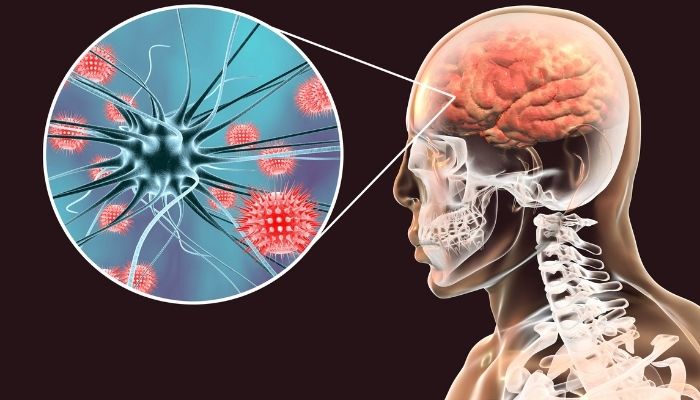Ratul, a youngster of 23, was suffering from persistent fever and headaches. He even complained about stiffness in the neck to his parents. When the fever did not subside after a couple of days, his parents took him to the hospital to meet the family doctor. He ultimately diagnosed it as meningitis. What exactly is meningitis? It is an infection affecting the meninges.

There are many signs of meningitis including the ones Ratul was suffering from. With quick treatment, people can recover swiftly from this ailment. There are vaccines available to help combat the recurrence of the disease as well. There are several types of meningitis as well, including viral and bacterial meningitis.
Learning More About Meningitis
Meningitis is an infection impacting the meninges which are the protective lining of the spinal cord and brain. There are three types of this ailment, leading to meningitis symptoms in adults such as headaches, fever and stiffness in the neck. Meningitis may turn serious if not treated properly.Types of Meningitis
Before you go into the meningitis symptoms and causes, here are the types that you must know more about.- Fungal
- Bacterial
- Parasitic
- Viral
- Noninfectious
- Amebic
Causes & Symptoms of Meningitis
Some of the symptoms include Meningitis headaches, fever and stiffness of the neck. Here are some other pointers worth keeping in mind:- Bacterial meningitis happens when bacteria gets into the bloodstream and travels to the meninges, leading to infections. Meningitis may also take place due to an infection or injury to the head. Symptoms include headaches, fever and stiffness as mentioned, while children may also witness seizures, irritability, vomiting, swelling in the head, drowsiness and confusion.
- Viral meningitis happens due to virus groups like non-polio enteroviruses or others like the herpesvirus, arbovirus, lymphocytic choriomeningitis virus, influenza, measles, mumps and so on. Symptoms include headache, appetite, light sensitivity, irritability, weakness, nausea, vomiting and drowsiness.
- Chronic meningitis impacts those with weaker immunity and also those suffering from cancer, AIDS, and other conditions. Symptoms include numbness of the face, headache, fever, paralysis and confusion.
Testing and Diagnosis of Meningitis
The doctor will determine the exact type of meningitis. It may be done via a spinal tap for spinal fluid analysis. Tests may be required for analyzing urine, blood and mucus from the throat and nose.Diagnosis of Bacterial Meningitis:
- Red or purple rashes on the skin.
- Stiffness of the neck.
- Knee and hip flexion.
- Throat and nose swab.
- Spinal tap.
- CT scan.
- MRI scan.
- Stool sample.
- MRI scan.
- Spinal tap.
- CT scan.
Treating and Managing Meningitis
Bacterial Meningitis Treatment- Antibiotics are required and treatment may begin well in advance. Intravenous antibiotics may be prescribed with corticosteroid for lowering inflammation levels. You will also require fluid replenishment due to vomiting, sweating, appetite losses and diarrhea.Viral Meningitis Treatment- Antiviral medication may be recommended in this case. Things may start improving within 7-10 days in some cases.
Chronic Meningitis Treatment- This treatment method is mostly dependent upon whether the type is non-infectious or infectious. The former may require prednisone while viral or fungal meningitis may require specific medication as well.


